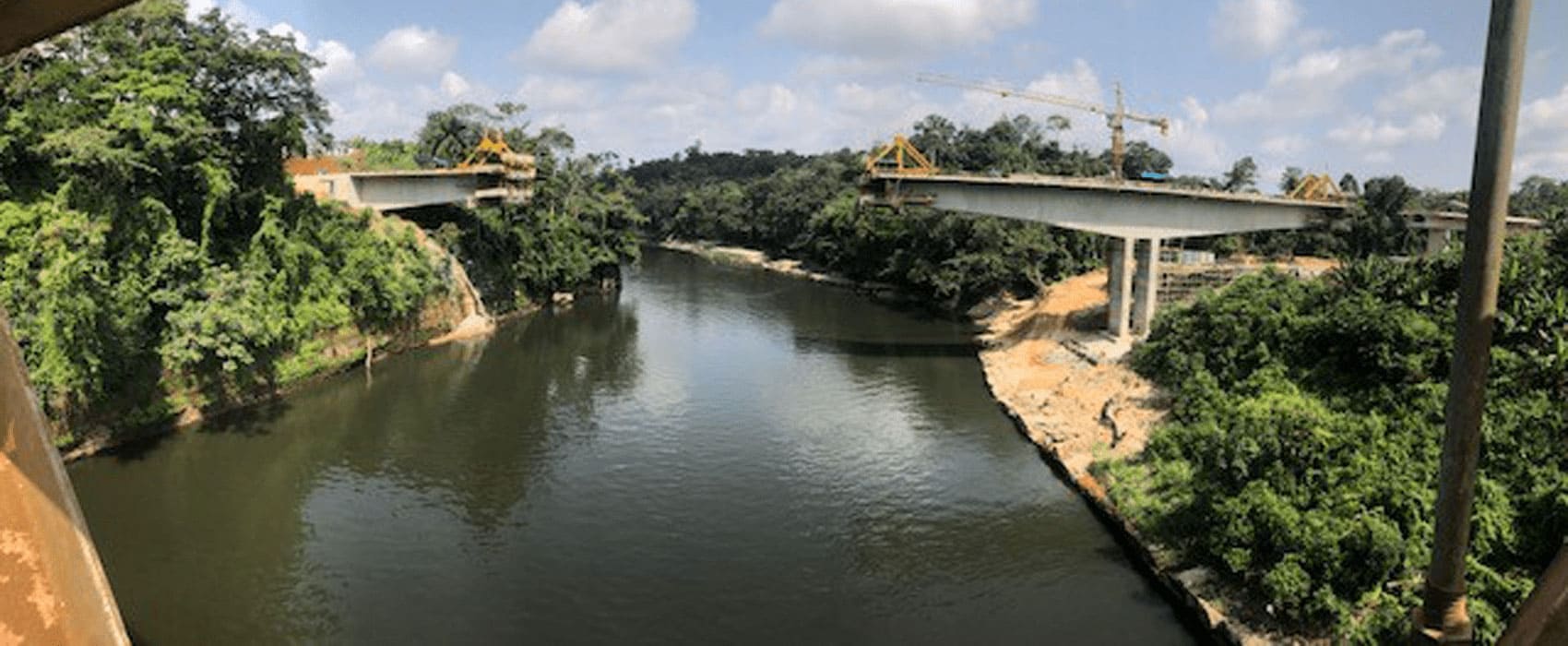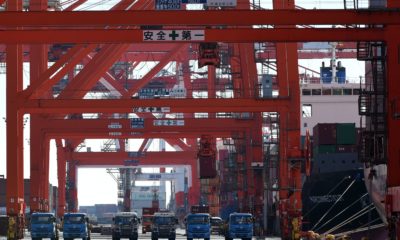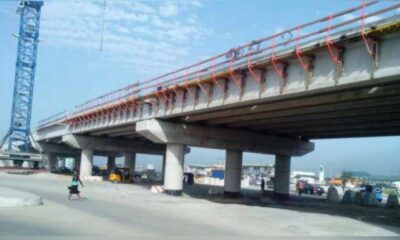Nigeria’s Minister of Works and Housing, Babatunde Fashola has said that the construction of a new double lane bridge on the border between Nigeria and Cameroon will facilitate free trade.
Fashola said this on Monday while inspecting the newly constructed 1.5km, two-lane bridge on the border between Nigeria and Cameroon in Ekot-Mfum, Etung Local Government Area of Cross River.
The construction of the bridge began on April 28, 2017, and was completed in March 2021 at the cost of 35.9 billion dollars. Funding for the project was provided by both countries.
According to the minister, the construction of the bridge will also strengthen relations between both countries and improve cross-border security.
”This is the first shoot of the harvest of completed projects proposed as the administration enters the second phase of the second term on its way out,” he said.
Fashola said that the administration’s plan to renew and expand old infrastructure would take the two countries to the future for many more decades and strengthen the relationship between them.
“We have had a strong relationship with the Republic of Cameroon in terms of trade and business.
“If you go to Aba, Enugu, and Abakaliki for example, I can tell you that they are on the route that facilitates trade in agro-produce, merchandise, and manufactured goods from Aba in Abia state.
“You can only expect that this will improve joint border patrol, ensure security, more efficiency which you see from the first buildings formed out of the integration of ECOWAS and sister nations of what the continent should look like.
“Nigeria is now a signatory to the Africa Continental Free Trade Agreement (AFCFTA). So this is the infrastructure that positions both nations to take the benefit of the trade that the agreement holds.
“It is really exciting. Looking into the future you can only see more business, more trade, and employment meant for people,” Fashola said.
On revenue generation, the minister said that the bridge was a social asset and that the happiness and prosperity of Nigerians was enough payment.
“These are social assets and we must understand that the requirement is the happiness and the prosperity of the people of Nigeria.
“The prosperity of the people is the reason why President Muhammadu Buhari is pushing this infrastructure renewal.
“For as long as our people are happy, they can travel easily, they can reduce their journey, safe time on the road because if you save time you save money and am sure the President is delighted,” he added.
Henry Etuk, Chairman, Etung Local Government Area said the people are pleased with what the Federal Government had done.
Etuk reiterated that the new bridge would bring about better trade among the people of Nigeria and Cameroon.
He said that the ease of movement and trade would go a long way to improve relationships and foster development in the area.

 Forex3 weeks ago
Forex3 weeks ago


 Naira2 weeks ago
Naira2 weeks ago
 Billionaire Watch2 weeks ago
Billionaire Watch2 weeks ago




 Naira2 weeks ago
Naira2 weeks ago




 Naira2 weeks ago
Naira2 weeks ago




 Naira1 week ago
Naira1 week ago




 Naira4 weeks ago
Naira4 weeks ago




 Naira3 weeks ago
Naira3 weeks ago




















